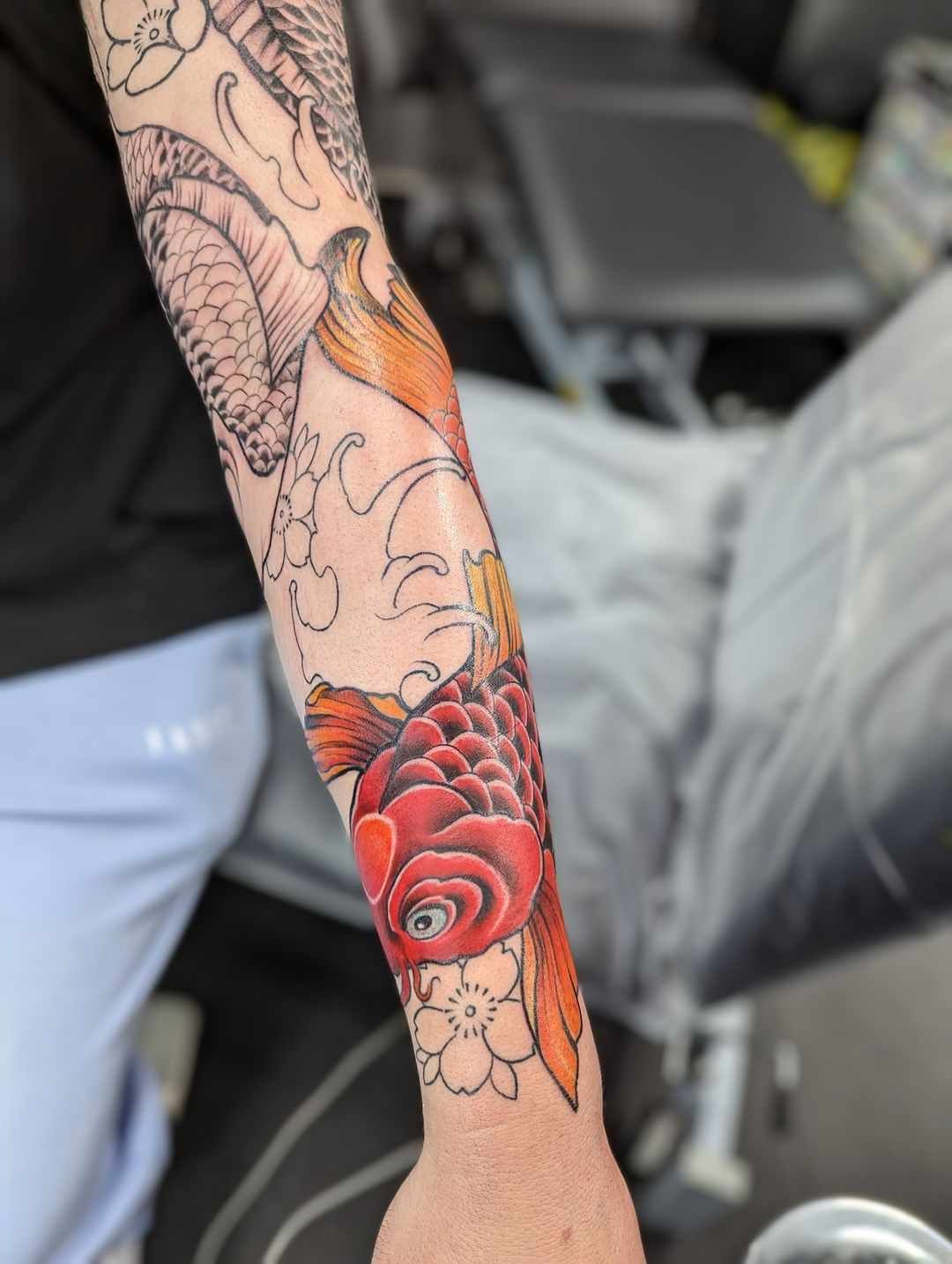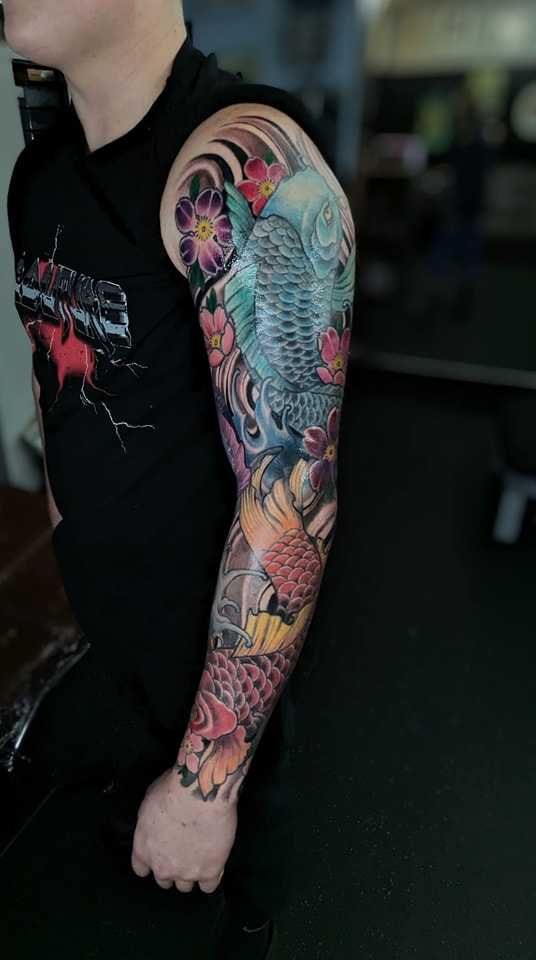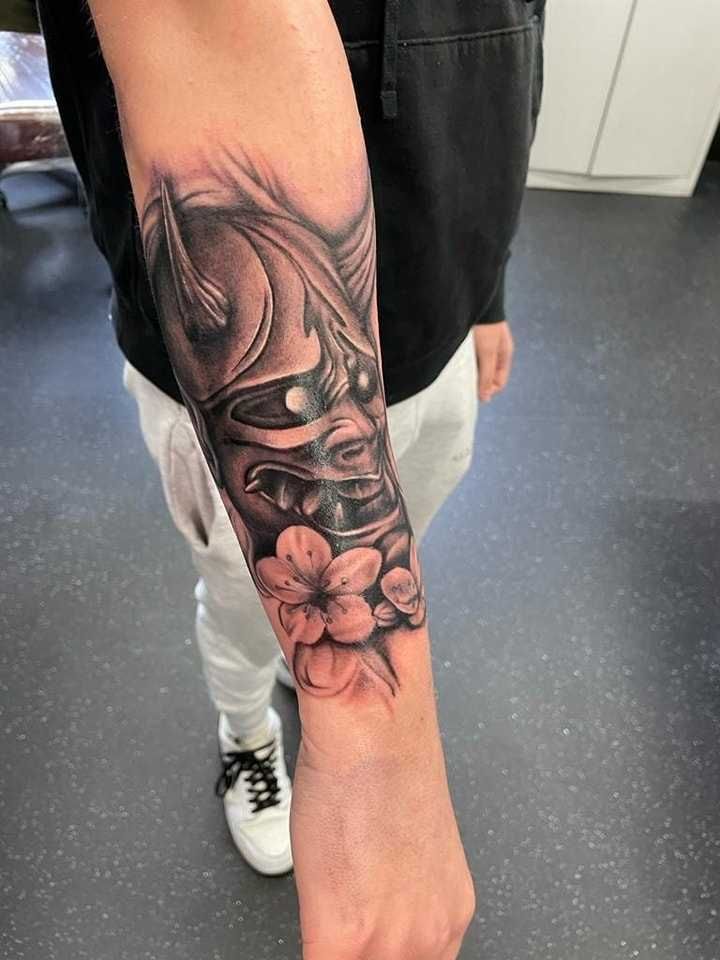bLOG
Japanese Blog
Traditional Japanese tattoos are deeply rooted in Japanese culture and history. This is extremely important to recognise as they usually hold significant meaning for most people. The symbols and structure used in Japanese mythology, folklore and art follow themes such as protection, bravery and good fortune. Traditional Japanese tattoos tell a story and are normally large scale.
Origins of the Japanese tattoo.
Ainu tattoo
The first tattooed people in the archipelago were the women of the tribe: an aboriginal tribe of fishermen and warriors. Tattoo were used for social rank and for the women were also a sign of beauty.
Traditional Japanese tattoo
Chinese explorers described the rites of the Ainu tribe as barbaric when the first discovered the Ainu on the Japanese islands. Japanese prisoners up until 1870 were tattoo branded with red iron on the forehead and symbols on thier arms, this was considered a punishment. Also, during the edo era prostitutes tattooed thier bodies for creative purposes - these are possibly the reasons why negativity remains today.
Japan practiced an isolationist policy during the edo era called Sakoku. This policy did not permit any foreign entry into Japan, but during the Meiji period Japan opened its borders to build relations with westerners. The emperor then banned tattooing in 1872 so a tattooist had to the hide the nature of their profession.
After World War 2 during the American occupation, tattooing was legalised again but Japanese tattoo artist were associated with Yakuza gangsters. It is only recently since 6th October 2020 that Japan's supreme Court ruled tattoo artists do not need a medical licence to practice.
Popular Japanese tattoos
Japanese koi carp - meaning 'perseverance and luck'.
The koi fish legend in Japanese mythology. During the 3rd month of every year thousands of carp travel along the upper reaches of the yellow river, swimming against the current in order to get to the aquatic garden pond. They gather at the longmen waterfall. Myth states that if the koi, with the help of its fins, manages to get up the waterfall it turns into a Japanese dragon.
Japanese Dragon - meaning 'courage and protection'.
This popular tattoo comes from the edo period, the workers who were called tobis who worked on roofs of houses and climbed upon the roofs using their bare hands. The dragon is a sign of courage.
Samurai tattoos - meaning 'warrior'.
Samurai were the hereditary military nobility of medieval to early-modern Japan from the late 12th century until their abolition in the late 1870s during the Meiji era.
What does a samurai Symbolise?
It is also deeply rooted in the mind of Japanese society. The basis of samurai conduct is bushido, "the way of the warrior".
This distinctive philosophy holds in high regard honour, reckless bravery and selflessness, as well as commitment to the warrior's master with the purpose of giving up one's life and embracing death.
Japanese tiger tattoo - meaning 'longevity and strength'.
The tiger is considered to be the highest ranking of all land animals - representing strength, courage and long life. Tigers are also said to be able to ward off bad luck, disease and demons.
In many old prints you will see a tiger fighting demons (Oni) at the side of "Shoki" - the demon queller. Tigers are one of the four sacred animals, symbols of the North and represent the season of Autumn and control of the winds.
Japanese oni meaning - 'Japanese demons'
Like hannya, they symbolise revenge. Oni are also called yokai demon.
Japanese phoenix - meaning 'immortality and glory'
The phoenix reprents the symbol of good fortune and divine wisdom. The phoenix is said to appear only in times of peace and prosperity, bringing a message of hope and rebirth. In Japanese culture this also represents the goddess Amaterasu - a sun deity whose presence evokes the vital energy of the sun itself.
Sakura tattoo - the cherry blossom symbolising the ephemeral beauty of life.
The snake represents good health and power. In traditional Japanese tattoos, the snake holds a vast range of meanings and performs numerous important functions. Among its many attributes are protection from illness, disaster, and bad fortune.
Snake tattoos also represent wisdom and protection, particularly from the results of bad decisions. The snake can also embody regeneration, healing, and medicine as it was revered in Japanese culture in association with medicinal rites and remedies. As a symbol of good luck, it was also though to bring good health.




